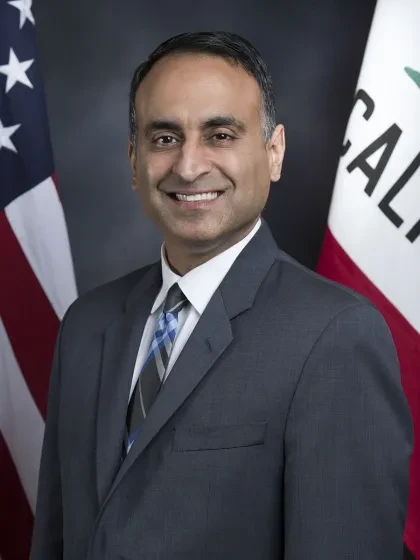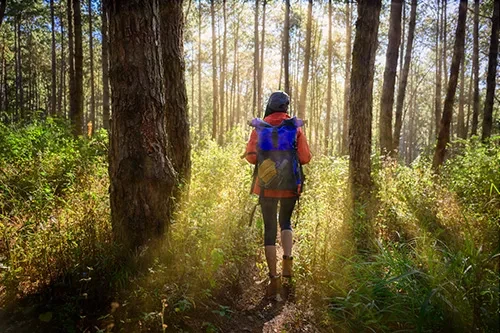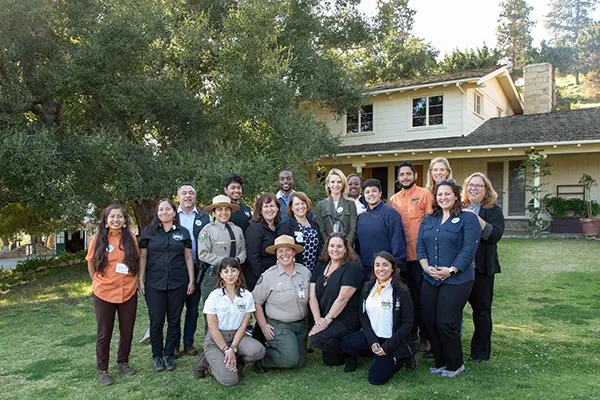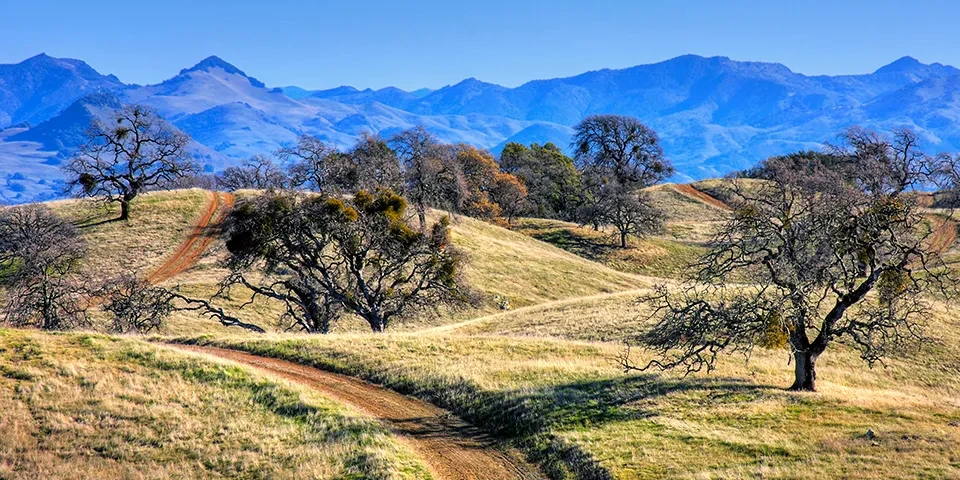California State Parks Week celebrates the amazing diversity of California’s state park system and the people who visit and help protect these iconic places. On Partnership/Volunteer Day, we amplify the importance partners play in stewarding the California state park system. These partners include the California State Legislature. The California State Legislature creates public policy through legislation and the state budget that affect conservation, funding, and equitable access to state parks.
Assemblymember Ash Kalra is one park champion in the Legislature who is serious about ensuring access to nature is equitable. Kalra is authoring Assembly Bill 30, legislation to promote outdoor equity. This bill makes it the policy of California that all Californians have safe and affordable access to nature when the state is making budget and infrastructure decisions. California State Parks Foundation supports this legislation and is advocating alongside Kalra.
Kalra represents East San Jose, a community he has lived in since he was a young child. He is a member of the Assembly Water, Parks, and Wildlife Committee, the first Indian American to serve in the California State Legislature, and a vegan who loves to cook. Before taking office, he was a Deputy Public Defender for Santa Clara County for 11 years. Learn more about why Kalra is a passionate partner for equitable access to parks below.
California State Parks Foundation: Why are you personally passionate about promoting outdoor equity?
Assemblymember Ash Kalra: I think access to nature is a social justice issue. When you think intersectionally, it crosses racial and socioeconomic boundaries… The same communities that struggle with economic despair or over policing are the same communities that have a lack of access to nature.
California State Parks Foundation: What drew you to author Assembly Bill 30?
Assemblymember Ash Kalra: When we are protecting open spaces often times … there is a distinct racial and economic disparity in those that are using beautiful open spaces we are protecting. It is not good enough to say we are going to protect and create more open spaces, we have to be intentional about ensuring that all California families have equitable access to those spaces, as well.
California State Parks Foundation: What suggestions do you have for non-profits and the state agencies and departments trying to reduce barriers to nature for nature deprived communities?
Assemblymember Ash Kalra: Non-profits working on the ground are critical for this work whether they are working on open space, creating more parks, urban greening, or tree planting. For them to be effective they need to bring in community leaders and neighborhood leaders that are in the most effected neighborhoods. It can’t be about us talking to the audience that we are trying to uplift, but having that same audience … do the leading in terms of telling us what they need.
California State Parks Foundation: What is your favorite California state park?
Assemblymember Ash Kalra: My favorite state park is Henry Coe State Park. Although it is not in my district today, if I am fortunate enough to get reelected it will be in my future district. It is a wonderful state park, very close to the urban center of Santa Clara County.
To keep up to date on Assembly Bill 30, follow California State Parks Foundation on Twitter @calparks or check out our legislative agenda at https://www.calparks.org/legislative-agenda.
Why are you personally passionate about promoting outdoor equity?
“I have always done social justice work in fact; and I was a public defender for a decade and so the reality is that I think access to nature is a social justice issue. When you think intersectionally, it crosses racial and socioeconomic boundaries where you see some of the same communities that struggle with economic despair or over policing are the same communities that have a lack of access to nature so there actually is a connection to the work I have done throughout my career in terms of fighting for environmental justice and equity issues as it applies to the environment.”
Are you hearing about issues related to equitable access to nature in San Jose?
Absolutely, I represent about half of San Jose which includes East San Jose, which is an area that has historic difference to West San Jose, and the wealthier parts of the county in terms of parks, in terms of trees, in terms of greenery and so I absolutely work to create more opportunities for access to open spaces throughout my district, certainly in those neighborhoods that have park deficits.
Have you ever done any work in the environmental justice world?
I have been involved with non-profit organizations that have been about trail and open space access
My work on the city council ensuring that we are protective of park in-lui fees and other resources to create more park and open spaces and that’s flowed nicely into my work in the State Assembly in terms of protecting open spaces including Coyote Valley, which is the largest area of undeveloped, developable land that I have been working to protect for 14 plus years.
What drew you to authoring this legislation?
Well, it is a follow-up to my original authorship of AB 3030 which the governor’s executive order to protect 30% of our land and water by 2030. The reality is when we do protect these open spaces often times when it comes to using these open spaces for recreation there is a distinct racial and economic disparity in those that are using beautiful open spaces we are protecting. So, it is not good enough to say we are going to protect and create more open spaces, we have to be intentional about ensuring that all California families have equitable access to those spaces, as well.
What suggestions do you have for non-profits trying to reach these nature-deprived communities to reduce their barriers to nature?
The non-profits working on the ground are critical for this work whether they are working on open space, creating more parks, urban greening, tree planting. They are all critical partners for our work. Now what I would say that in order for them to be effective they need to bring in community leaders and neighborhood leaders that are in the most effected neighborhoods. So, it can’t be about us talking to the audiences we are trying to uplift. But having that same audiences not just be part of the conversation but actually do the leading in terms of telling us what they need. And I think that is critically important, critically important to the work that we do. If we want it to be effective, we have to talk, we have to bring the communities that are being most impacted or being left out of the conversation
What is your favorite state park?
Okay so my favorite state park is Henry Coe state park. Which is the largest state park in Northern California – over 87,000 acres I believe. And although it is not in my district today, if I am fortunate enough to get reelected it will be in my future district. It is on kind of the eastern portion of Santa Clara County going into Stanislaus County and it is a beautiful park that has campgrounds and lakes and opportunities. I look forward to, my hope, is as it hopefully becomes a part of my new district to be able to work with the state parks and get a helicopter tour. I really want to get a Birdseye view of the park because it is a wonderful state park right, very close to the urban center of Santa Clara County.



